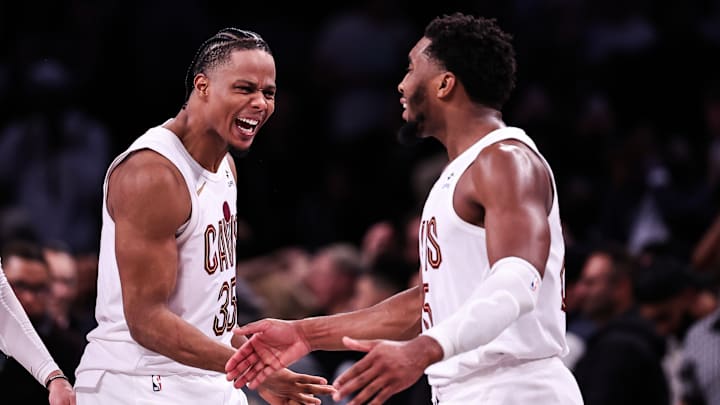Approaching the trade market in the NBA is not simply about compiling a list of players that you want to add and raising your paddle in a bidding war until you land that player. It's also not just looking at your roster and deciding who to keep and who to trade. There are understandably many layers and facets to working through trade season.
One important step for the Cleveland Cavaliers is to evaluate each player and draft pick that they currently own. Which ones hold the most value on the trade market? Comparatively, which ones hold more value to other teams than to the Cavaliers?
Deciding to trade a certain player is well and good until you realize that other teams don't value them. Look at the Chicago Bulls' failed shopping of Zach LaVine as exhibit 'A' this trade season. On the flip side, keeping a player you like but who isn't a good fit when there are teams lining up to trade for him is poor asset management.
With that in mind, what is the best trade asset that the Cavaliers have in their war chest? If they were to make a trade, who would return the most value in a deal?
Donovan Mitchell is the Cleveland Cavaliers' best trade asset
The answer to this one is quite simple: Donovan Mitchell, their No. 1 offense option and best player, holds the most trade value of anyone on the roster. Teams can always use a dynamic on-ball shot creator, especially one with Mitchell's explosion and 3-point shooting. Even teams with small guards like the New York Knicks have to consider adding Mitchell if the opportunity arises, and there are plenty of strong trade packages that could be headed the Cavaliers' way if they were to make Mitchell available.
Even if Mitchell is the clear top choice, his proximity to free agency shaves a little bit of his trade value away, making it a closer race than you might think with the Cavaliers' next-best trade asset: Evan Mobley. It may seem impossible to consider the Cavs trading their young defensive phenom, but we laid out the rationale for why the team has to at least think about it in evaluating the team.
Mobley still has another year left on his rookie-scale contract, then will be on the "fun max" for a player with less than seven years of experience, a bargain for the production he brings. His high floor and limitless ceiling as a defensive player will make him attractive to a number of teams who would likely pay up to get a difference-maker under contract for a long time.
Taking a step back, however, the Cavaliers are unlikely to trade any one of their core four stars. If they are instead looking to upgrade the rotation for a playoff run around those players this season and beyond, which of their non-star assets is most valuable on the trade market?
For most teams the answer would be a draft pick; teams trying to win in the present rarely have players valuable to other teams that they don't want for their own run. Given what the Cavs gave up in the Donovan Mitchell trade, however, they can't trade a first-round pick until this summer, and as a young, good team their seconds don't offer much upside. That means the Cavaliers' role players are their best avenue to building a trade package.
Isaac Okoro is the best of the Cavs' non-star trade assets
Georges Niang is a solid player but is also under contract for two more seasons and is having a shaky first season in Cleveland. Dean Wade is integral to the Cavs but his limited offensive upside may not be enough to entice another team. Sam Merrill is growing into an extremely valuable player but was a relative unknown heading into the year. Caris LeVert is the closest to topping this list, but his contract isn't inexpensive and he could be an awkward fit on a number of teams.
Isaac Okoro is one of the league's best backcourt defenders, able to harry opposing guards the length of the court and fight over screens to stay glued to them on the perimeter. The Cavaliers' commitment to two non-shooting bigs makes Okoro a tough fit in Cleveland, but he is a former top-5 pick who is just 22 years old. A team could easily talk themselves into Okoro's upside and trade for him to gain his restricted free agent rights this upcoming summer.
To his credit, Okoro has improved as a shoot each season of his career, going from 29 percent from 3-point range as a rookie to 36.6 percent this season. His volume isn't high enough to make defenses guard him, but he is a willing cutter and strong finisher who could play much better in a different system. In fact, since Mobley has been out, Okoro has been elevated into the starting lineup and played well to further boost his trade value.
The Cavaliers could wish they had a couple of first-round picks to include in a deal, or that they had players in the pipeline ready to step up into bigger roles as 3-and-D wings. If the Cavs are goung to find such an upgrade on the trade market, trading a player like Okoro might be the way to do it.
